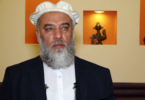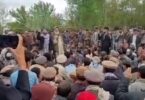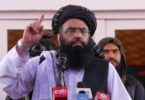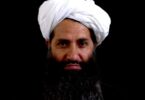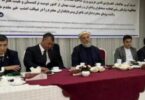Monitoring Desk
KABUL: Across the Afghan capital, carpentry shops are turning out crude pine tables. Soon, thousands of families will spend icy winter evenings huddled around them, with a few hot coals underneath and blankets spread over the top. In many areas, electricity cuts and high firewood costs have made these traditional “sandalis” the only source of heat.
“The cold is getting worse, the prices are going up and there is no work,” said Baba Pahlawan, 70, who sells firewood for about 8 cents a pound. Most customers, he said, can afford only a few sticks at a time. When they run out, they buy a few pieces of coal. When that runs out, “people stay under their blankets and wait for the morning.”
As another harsh winter approaches, worry is sharpening the seasonal chill in this bustling but bedraggled city of 4 million surrounded by white-capped mountains. It is being felt not only in communities like Pahlawan’s — and not only because of the worsening daily struggle to survive.
Two larger, intertwined struggles to determine the country’s future have dominated the national conversation for months: on-and-off peace talks with Taliban insurgents and a contentious process to choose a new president. Now, both efforts have slowed to a near-halt, and analysts say it may be spring before either bears fruit.
Negotiations between Taliban and US officials, which had advanced in fits and starts, were canceled by President Donald Trump in September. This month the talks were revived, and various truce proposals are under discussion.
But the insurgents seem in no hurry to make a deal, while the White House appears likely to withdraw thousands of troops even as Taliban violence continues.
On Dec. 23, Army Sgt. Michael J. Goble, 33, of Washington Township, New Jersey, was killed during combat operations in northern Kunduz province, becoming the 20th American service member to die violently in Afghanistan this year. Taliban spokesmen claimed responsibility for his death in a roadside bombing.
Meanwhile, the troubled Afghan governing transition has become bogged down in complaints of fraud, leaving the country rudderless and tense. On Sunday, election officials released preliminary results showing that President Ashraf Ghani narrowly won reelection in the Sept. 28 poll, with just over 50 percent of the vote, but his opponents immediately challenged the results.
It will now probably take many weeks for an election panel to review thousands of fraud allegations, including charges that numerous votes were cast before or after election day. If enough votes are invalidated, a runoff will be required in the spring.
“We are at a deadlock of war and peace and politics,” said Rahmatullah Nabil, a former national intelligence director who placed third in the race. He predicted that with up to 300,000 ballots being challenged and a 12,000-vote margin announced between Ghani and his top contender, Abdullah Abdullah, a runoff is likely.
But others also warned that further delays could lead to political turmoil. The insurgents have refused to recognize Ghani’s government, and Nabil said a broad array of Afghans need to “sit down and discuss the way forward. Either a fraudulent government or a parallel one would be dangerous for democracy.”
Ghani and his aides have put an aggressive, upbeat face on the situation. The president promised one gathering of supporters this week that he and his “state-building team” will consolidate a “true Islamic republic” — meaning a Muslim democracy. Taliban leaders seek to install a theocratic emirate.
While US and UN officials have cautioned that the election will not be over until all complaints have been investigated, Indian Prime Minister Narendra Modi, who shares Afghans’ widespread antipathy toward their common neighbor, has already called to congratulate Ghani.
For many Afghans, both the election contretemps and the disappointing trajectory of the US-Taliban talks exemplify the distance between high-level power struggles and everyday concerns.
“Peace and elections are the preoccupations of the elite, while human circumstances are in crisis,” said Davood Moradian, executive director of the Afghan Institute for Strategic Studies. “Facebook has created a virtual world for Afghan politics, but it is not the world in which most Afghans live.”
In interviews this week, a variety of Kabul residents said they were disillusioned with the national leadership, especially those living in poverty. After years of massive foreign aid, Afghanistan remains one of the world’s poorest countries. A recent survey by the Asia Foundation said that a quarter of Afghan households earn less than $64 a month.
“There is no security, and there are no jobs, because all the rich people have fled,” said Mawladaad Wasi, 32, who carts wood and coal all day but does not earn enough to keep his home warm. He denounced politicians as corrupt and said funds spent on the elections “should have been donated to poor people.”
Several others with professional backgrounds seemed equally despairing. Some said they had lost good jobs after the drastic cutback in US troops in 2014; others blamed the conflict for blocking investment or said the Ghani government had failed to create jobs while pursuing grandiose projects.
Abdul Rashid, 53, was once a teacher, but he now sells fruit. He said two of his sons had to leave school to work washing cars, while he returns home exhausted each night after 15-hour days pushing a heavy cart.
“I am very worried about the future,” Rashid said. “If we did not see improvement for a majority of people during the past 18 years, when there was a flood of foreign aid and troops, how can we be hopeful for a future that brings peace and good governance?”
Last year, the Asia Foundation survey found that Afghans’ optimism had increased slightly, with 36 percent of respondents saying the country was “going in the right direction,” up from about 32 percent in 2018. But much of that increase, it said, was based on hopes for a breakthrough in peace talks.
Since September, that hope has subsided again. Even if a proposed brief truce can be reached, analysts said, the likelihood of further US troop cuts has left the insurgents feeling more powerful, while the election dispute lessens the chance of creating a unified, credible Afghan team to negotiate the country’s political future.
“The momentum has been lost,” Moradian said. “Things are stuck, enthusiasm for the peace effort has dwindled, and the Taliban look like they are aiming for victory.” The United States, he said “used to own the peace process. But no one in Kabul does.”
Sitting next to a pyramid of firewood, Pahlawan put the problem another way.
“What we need are more factories, so people can go to work and stop being beggars,” he said. “Instead it looks like we are just going to have more war.” (The Washington Post)

